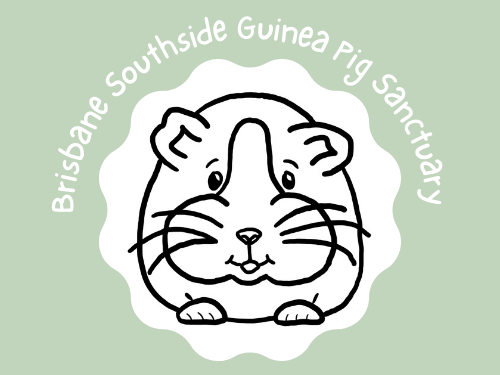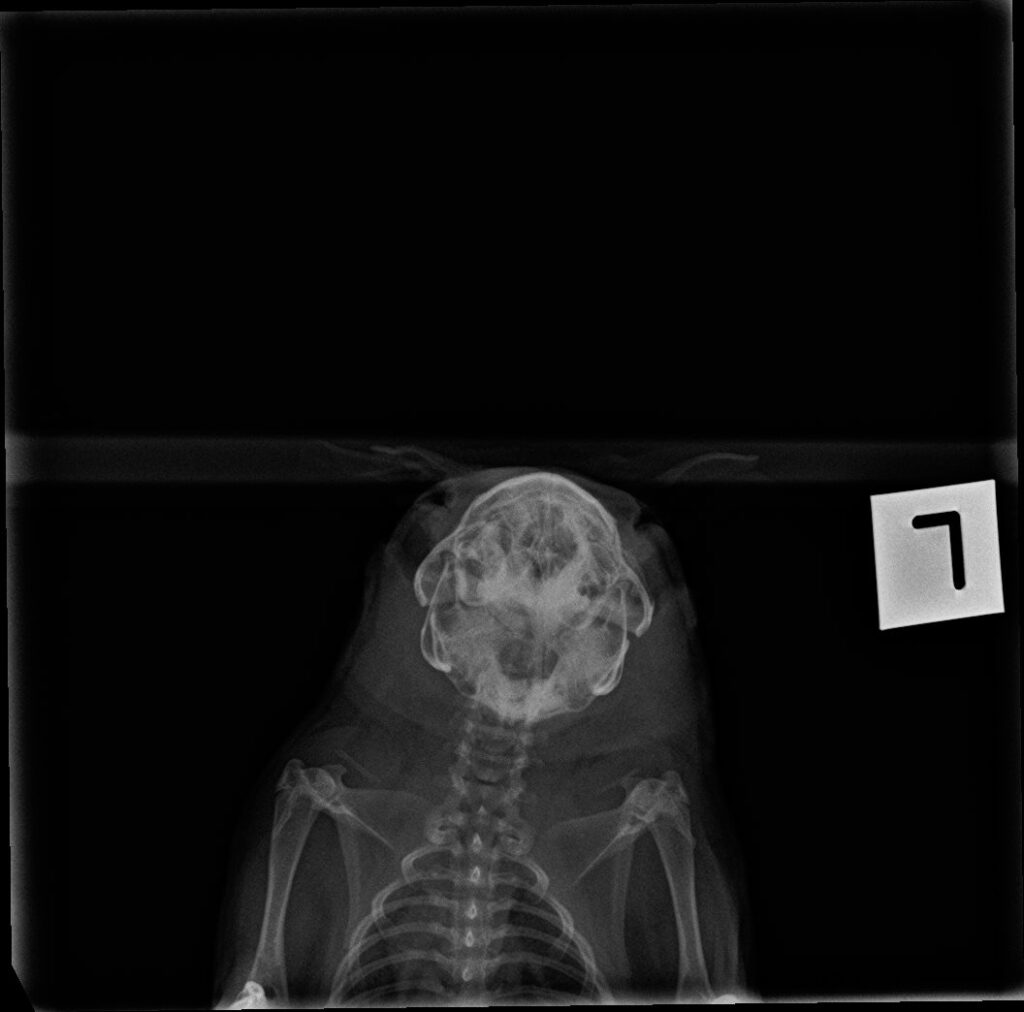‘Lethal White’ Guinea pigs are guinea pigs that are born with a suite of genetic conditions due to breeding between Roan/Dalmatian pairings. These genetic abnormalities can include:
- Microphthalmia – where the eyes are poorly developed, they are typically much smaller and are blue-ish in colour.
- Head tilts – these are typically caused by skull deformation or poor development of the middle ear and tend to worsen with stress.
- Dental malformations – may have missing incisors or cheek teeth, incisors and cheek teeth may also grow abnormally such as twisting, or in the wrong position.
- Deafness – linked to head tilts and is often attributed to poor development of the middle ear.
How do I know if my guinea pig is a lethal white?
Firstly, look for symptoms listed above such as head tilts, dental malformations, microphthalmia, etc. Another characteristic of lethal whites is their lack of pigment, as they will exclusively have white fur and pink skin. If there is any colouring such as darker ears, they are not a lethal white. It’s important to acknowledge that not all pink-eyed whites are lethal whites, so once again, check for genetic abnormalities! If you’re unsure, take your guinea pig to an experienced exotic vet clinic or feel free to reach out to us for advice.

How to Care for Lethal Whites
Overall, the care isn’t that different to other guinea pigs! When you first discover you have a lethal white or are concerned you may have one, it is best to book an appointment with your local exotic vet and get an in-depth health examination. This examination should include a full dental exam, an assessment of head tilt, eyes, hearing, and more. This exam will highlight the need for any ongoing vet care such as dental procedures, radiographs to assess middle ear discomfort, etc.
Other things you can do to best care for your lethal white is to:
- Finely chop fruit and vegetables – due to dental abnormalities, they may find it harder to chew larger pieces of vegetables. Finely chopping makes veggie time much easier and more enjoyable!
- Keep your cage set up the same after cleaning – due to reduced sight, keeping things in the cage the same helps them know where things are and reduces stress.
- Make sure they have a friend – having other guinea pigs around them helps with their confidence and they often create very strong bonds with their cage mates.
- Educate yourself! – there isn’t a lot of information on lethal whites out there! It’s important to research and educate yourself so you can best understand the needs of your guinea pig.

Common Misconceptions About Lethal Whites
- They only belong in rescues – this couldn’t be further from the truth! As long as owners are willing to learn and understanding of the additional care needs, there is no reason as to why they couldn’t thrive in a home environment.
- Seizures are common – if your lethal white has a seizure, go to the vet! Seizures are not common in ANY kind of guinea pig, even those with head tilts. Seizures can signify a new illness or worsening of another, so it is key to see your vet to determine if 1) it’s definitely a seizure (agonal breathing is often misunderstood as seizures), 2) what kind of seizure it is, and 3) how to best treat moving forward.
- It’s normal for microphthalmia to worsen – microphthalmia is NOT a degenerative condition! If your lethal’s eyes appear smaller or more sunken than normal, it is best to go to an exotic vet as sunken eyes can signify developing illnesses such as decreased organ function, dehydration, and more.
- It’s safe to cut incisors at home – if your guinea pig has overgrown incisors, please go to a vet to have them assessed and trimmed. Incisor trims that are done at home without the proper equipment and anaesthesia are very risky and often result in splintering of the teeth and consequently worsening dental condition.
Thank you for taking the time to read!
As always, please use this website as an educational tool only, always consult your vet if you have concerns over the health of your guinea pig.


